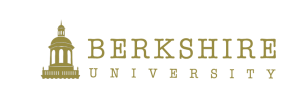Occupational Therapy – Bridge Program, MS
The Master of Science in Occupational Therapy (MSOT) Bridge Program at BSU is designed to educate health care providers with COTA credentials to build upon their existing professional experience. In the course of completing the MSOT graduate degree, students in the program will develop managerial, program assessment, and client evaluation skills while expanding their leadership roles in the field of occupational therapy.
Master of Science degree in Occupational Therapy will include instructional delivery methods that are both campus-based and hybrid. The program integrates didactic, face-to-face, and clinical experiences to prepare students to achieve success on the National Board of Certification in Occupational Therapy (NBCOT®) exam, and to function as a generalist occupational therapist within the profession.
Program Objectives
BSU MSOT program enables students to:
- Articulate and apply occupational therapy theory, client-centered evaluation, and OT practice-related evidence to achieve expected outcomes as related to occupations.
- Articulate occupational therapy theory, analyze practice-related evidence and apply the subsequent evaluation strategies for effective planning of OT services and treatment implementation.
- Apply occupational therapy theory and evidence-based research to inform practice.
- Develop and modify intervention plans based on assessment of the client, client priorities, client discharge needs, environmental factors, and expected outcomes.
- Demonstrate entry-level clinical competence through a combination of academic and fieldwork education culminating in meeting established professional criteria.
- Demonstrate the ability to effectively utilize available resources and create/generate new resources to meet the needs of OT clients and populations.
- Demonstrate professional behaviors and leadership abilities reflective of an ethical, competent health care professional within the occupational therapy profession.
- Engage in scholarly endeavors to describe the scope of the profession.
- Demonstrate effective interdisciplinary collaboration skills in order to maximize OT clients’ and populations’ functional outcomes.
- Engage in scholarly endeavors to interpret and apply evidence-based practice data to OT practice.
- Demonstrate professional communication skills in writing through organizing, thinking critically, and communicating ideas and information in documents and presentations.
Prerequisites for Major Courses
The prerequisites for major courses are as follows (earned credits from an OTA program are acceptable):
- Human Anatomy and Physiology I with lab (4 credit hours)
- Human Anatomy and Physiology II with lab (4 credit hours)
- Statistics (3 credit hours)
- College Algebra (3 credit hours)
- English Composition I (3 credit hours)
- English Composition II (3 credit hours)
- Introduction to Psychology (3 credit hours)
- Abnormal Psychology (3 credit hours)
- Life Span Development (3 credit hours)
Candidates must achieve a minimum 3.0 GPA (on a 4.0 scale) with no grade less than C for all pre-requisite/co-requisite courses. Any pre-requisite courses taken prior to admission to the MSOT program must have been completed at a regionally accredited college or university.
Note: Students who enter the Master of Science in Occupational Therapy program must have computer access with internet capabilities. Basic computer skills (Word, PowerPoint, and e-mail) are required.
Program Outline
To receive a Master of Science degree in Occupational Therapy, students must earn 171.0 program-specific semester credit hours, inclusive of: Pre-requisite/Co-requisite courses, Associate of Science in Occupational Therapy Assistant degree courses (84 semester credit hours), upper-division undergraduate courses, and graduate courses.
| Master of Science in Occupational Therapy Upper Division Undergraduate Core Courses (24 credit hours) |
||
| OTH3000 | Foundations of Occupational Therapy | 4.0 credit hours |
| OTH3036 | Occupational Perspective on Health | 4.0 credit hours |
| OTH4517 | Health Care Management | 4.0 credit hours |
| OTH4758 | Life Balance: Multidisciplinary Theories & Research | 4.0 credit hours |
| OTH4716 | Leadership in Occupational Therapy | 4.0 credit hours |
| OTH4759 | Evidence-based Approaches in Occupational Therapy | 4.0 credit hours |
Upon completion of the above requirements, inclusive of pre-requisites and equivalent to 120.0 semester credit hours, a Bachelor of Science degree in Occupational Health will be awarded.
| Master of Science in Occupational Therapy Graduate Core Courses (51 credit hours) |
||
| OTH5243 | Functional Human Motion | 4.0 credit hours |
| OTH5445 | Assistive Technology in Occupational Therapy | 3.0 credit hours |
| OTH5245 | Neuroanatomy for Occupational Therapy | 4.0 credit hours |
| OTH5352 | Occupational Therapy Process: Mental Health | 4.0 credit hours |
| OTH5428 | Occupational Therapy Process: Physical Disabilities | 4.0 credit hours |
| OTH5854 | Field Work Level I, part 2 (Adults) | 3.0 credit hours |
| OTH5604 | Occupational Therapy Process: Geriatric | 4.0 credit hours |
| OTH5519 | Occupational Therapy Process: Pediatric | 4.0 credit hours |
| OTH5853 | Field Work Level I, part 1 (Pediatric/Adolescent) | 3.0 credit hours |
| OTH6770 | Applied Research in Occupational Therapy | 2.0 credit hours |
| OTH6937 | Fieldwork Seminar I | 2.0 credit hours |
| OTH6941 | Fieldwork Level II, part I | 6.0 credit hours |
| OTH6938 | Fieldwork Seminar II | 2.0 credit hours |
| OTH6942 | Fieldwork Level II, part II | 6.0 credit hours |
NOTE: The MSOT program 16-week semesters are each comprised of two eight-week terms, exclusive of fieldwork semesters. Students are scheduled for two courses concurrently, except for the first semester. In the first semester students will take one (1) course per eight-week term.
The on-line component of each course is asynchronous in nature; however, students are required to attend scheduled practical laboratories on-campus approximately one (1) weekend per month (Fridays and Saturdays).
The Master of Science in Occupational Therapy (MSOT) program at Keiser University was established in 2015. The MSOT program was accredited August of 2017 by the Accreditation Council for Occupational Therapy Education (ACOTE) of the American Occupational Association (AOTA). ACOTE can be reached at:
ACOTE
c/o Accreditation Department
American Occupational Therapy Association (AOTA)
4720 Montgomery Lane, Suite 200
Bethesda, MD 20814-3449
(301) 652-AOTA
www.acoteonline.org
Upon completion of the accreditation process, graduates of the program will be eligible to sit for the national certification examination for occupational therapists, administered by the National Board for Certification in Occupational Therapy (NBCOT; nbcot.org). After successful completion of the national certification examination, the individual will be an Occupational Therapist, Registered (OTR). Program results from the National Board for Certification in Occupational Therapy (NBCOT) can be found online at https://secure.nbcot.org/data/schoolstats.aspx
Faculty
Tamara Pinchevsky-Font, Dr. OT (MSOT Program Chair/PD)
Dr. Pinchevsky-Font earned both her Masters in Occupational Therapy and her post professional doctorate in occupational therapy (DrOT) from Nova Southeastern University in Ft. Lauderdale, FL. She is a licensed occupational therapist in Florida where she has 16 years of clinical experience. She has extensive experience in acute care, hand therapy, pediatrics, and rehabilitation. Dr.Pinchevsky-Font was a prior owner of Therapedi Inc, a home health agency for the pediatric population. Dr.Pinchevsky-Font also worked at the National Board for Certification in Occupational therapy as an assistant director of competency assessment. Dr. Pinchevsky-Font has co-authored articles and presentations on distance learning education and fieldwork education. She has made presentations at regional, state, national conferences, and webinars for continuing education.
Currently, Dr.Pinchevsky-Font is engaged in program assessment and teaching. Her research interests include health literacy, distance education, and children and families living in underserved populations. Dr.Pinchevsky-Font is a member of the American Occupational Therapy Association (AOTA), the Florida Occupational Therapy Association (FOTA), and board member of the Region 7 South Occupational Therapy forum.
Marek Graczkowski, EdD, MHSA, OT/L (Full time faculty)
Dr. Graczkowski attained a Doctor in Education (EdD) degree from Walden University in 2010, Masters in Health Services Administration degree from Florida International University in 2005, and a Bachelor of Science in Occupational Therapy from Florida International University in 2001. Dr. Graczkowski was born in Poland and lived there for the first 26 years of his life. Currently, Dr. Graczkowski and his wife reside in South Florida. Dr. Graczkowski has extensive experience with adults/geriatric populations with a wide variety of orthopedic and neurological problems. Dr. Graczkowski is a very strong supporter of holistic approaches to human beings, disease/disability prevention, and alternative forms of healing. Dr. Graczkowski’s favorite quote is “Veni, vidi, vici” or “I came, I saw, I conquered” (attributed to Gaius Julius Caesar).
Christina Sanford, Dr. OT (Full time faculty)
Dr. Sanford attained a Clinical Doctorate in Occupational Therapy (DrOT) degree from Nova Southeastern University in 2014, and a Masters in Occupational Therapy from Nova Southeastern University in 2010. Her doctoral research focused on the use of chair yoga as a therapeutic medium in adults status post CVA. Dr. Sanford was born in New York but grew up in Florida with her family. Currently, Dr. Sanford and her husband reside in South Florida. Dr. Sanford has experience treating young adult, adult, and geriatric populations with a wide variety of orthopedic and neurological diagnoses in both inpatient rehabilitation and acute care settings. Dr. Sanford excels in writing and has been a board member on the Institutional Review Board (IRB) at Broward Health. She has also formally represented occupational therapy in numerous interdisciplinary disease-specific committees including CVA, SCI and TBI. She is always willing to take on new challenges, as she believes in lifelong learning. Dr. Sanford has been teaching courses in the KU MSOT Program since 2016.
Carol Just, Dr. OT (Full time faculty)
Dr. Just completed her OTD at Rocky Mountain University of Health Professions in Provo, Utah in 2008. She has her Masters’ and Bachelors’ degree in Occupational Therapy from Temple University in Philadelphia, Pennsylvania. Her special interests are treatment and research in Autism and Sensory Processing Disorder in children. Dr. Just completed an internship at the Star Center in Denver, Colorado with Dr. Lucy Miller in 2009. Dr. Just comes to Keiser University with teaching experience from Thomas Jefferson University in Philadelphia, Pennsylvania where she co-taught with Dr. Roseann Schaaf and Dr. Zoe Mailloux within the Jefferson Autism Certificate Program and the OTD program. Dr. Just relocated to South Florida in 2014 and enjoys bike riding and the beach with her partner and dogs.
Laura Reyes, MSOT, OTR/L (Clinical Coordinator)
Ms. Reyes attained a Master of Occupational Therapy and a Bachelor of Science from Nova Southeastern University. Born in New York, Ms. Reyes relocated to South Florida in 2000 to initiate her educational pursuits. Ms. Reyes has extensive experience with the pediatric population within the SNF, PPEC, outpatient and school-based settings, serving as Director of Therapy at Broward Children’s Center prior to joining the Keiser University team. Ms. Reyes has had the pleasure of speaking nationally at the Pediatric Complex Care Conference (2013, 2015), the Florida Recreation and Park Association Conference (2015) and the Guardian Ad Litem Disability Expo (2014, 2016) on topics relating to Assistive Technology as it pertains to the medically fragile pediatric population. Additionally, in 2015, Ms. Reyes was highlighted as a “Profile in Leadership” in South Florida Hospital News. Most recently, Ms. Reyes is a CE Provider for PTs, OTs, and SLPs for her course, “Integrating Assistive Technology into Play”. In collaboration with Boston College’s Campus Day School and Broward Children’s Center, Ms. Reyes has had the opportunity to provide education and trainings on the Camera Mouse Assistive Technology at several national conferences and as a guest lecturer at local colleges and universities. Ms. Reyes currently lives in Ft. Lauderdale and her most enjoyable and favorite role to date is being a mother to her smart and charismatic son, Roman.
Julie Hebert, Dr. OT (Adjunct faculty)
Dr. Julie Hebert has over 19 years of experience as an Occupational therapist. She has a BS and MA in Education and an MOT. She recently received her Doctorate in Occupational Therapy at Texas Woman’s University with a focus on building student confidence levels using problem-based learning methods prior to fieldwork. Dr. Hebert recently had her CAP published in AOTA and has presented at the AOTA Education Summit and at the Texas state conferences. Dr. Hebert has been selected to be an Item Writer for the NBCOT boards this upcoming Summer 2017. Her specialty area is in adults and geriatrics. She has experience in long term acute, long term care, rehab hospitals, traveling therapy, and management. She also has experience as a fieldwork supervisor, and prior to her adjunct faculty position at BSU she has worked in other adjunct faculty capacities. She currently practices in skilled nursing, home health care and acute care hospital settings. Dr. Hebert is excited to be assisting in this new OT program at BSU.



